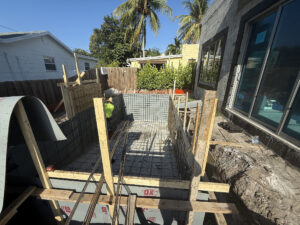Understanding the Impact of Pool Vacuuming on Energy Efficiency
How Pool Cleaners Affect Electricity Usage
Pool cleaners play a crucial role in maintaining a clean and inviting swimming pool, but you may wonder if they consume a significant amount of electricity. While pool cleaners do require electricity to operate, modern models are designed to be energy-efficient. Investing in a high-quality and energy-efficient pool cleaner can minimize electricity usage and reduce the impact on your energy bill. Specifically, a reliable pool vacuuming service can significantly assist in maintaining your pool’s cleanliness while also ensuring energy efficiency.
Energy-efficient pool cleaners are designed to optimize cleaning performance while minimizing power consumption. These cleaners utilize advanced technologies such as variable speed pumps, efficient motors, and intelligent navigation systems. They are engineered to clean the pool effectively with reduced energy requirements, ensuring a clean pool without the added burden on your energy consumption.
When choosing a pool cleaner, look for models with energy-efficient features such as programmable cleaning cycles, low-power consumption, and smart sensors that optimize cleaning patterns. By selecting the right pool cleaner, you can enjoy a clean pool while minimizing energy usage and lowering overall energy costs.
While pool cleaners do require electricity to operate, modern models are designed to be energy-efficient.
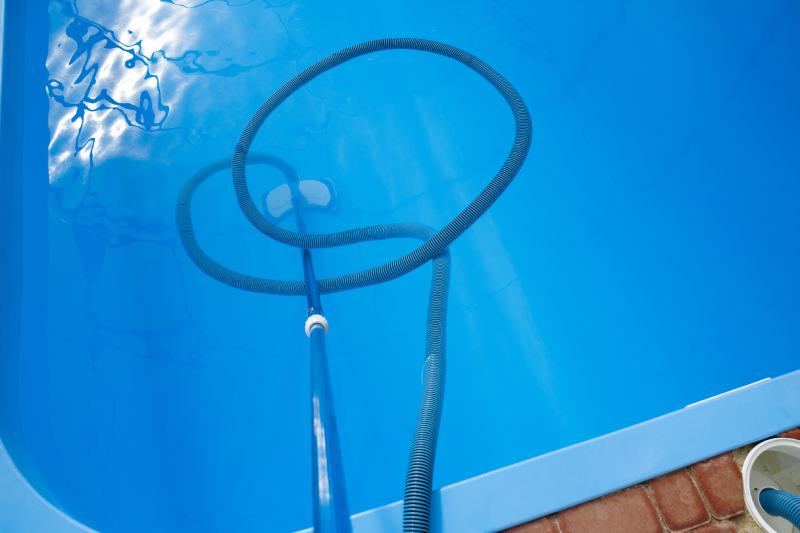
Optimal Duration for Pool Vacuum Operation
Finding the right balance between cleanliness and energy efficiency is essential when it comes to pool vacuuming. The optimal duration for pool vacuum operation depends on factors such as the pool size, the level of debris, and the efficiency of your pool cleaner. Running your pool vacuum for around 2-4 hours daily helps maintain a clean pool while minimizing energy consumption.
However, it’s important to note that the optimal duration may vary depending on your circumstances. For instance, if your pool is surrounded by trees or experiences heavy debris accumulation, you may need to increase the vacuuming duration. On the other hand, if your pool is relatively clean and you have an energy-efficient pool cleaner, you can reduce the vacuuming duration to conserve energy.
It’s recommended to monitor the cleanliness of your pool regularly and adjust the vacuuming duration accordingly. Finding the right balance can ensure a clean pool while optimizing energy efficiency.
It’s important to balance maintaining a clean pool and optimizing energy efficiency. By tailoring your pool vacuuming schedule to your pool’s specific needs, you can minimize energy consumption while ensuring a healthy swimming environment. However, be careful not to make common mistakes, as discussed in our guide on Avoiding Common Pool Vacuuming Mistakes for Effective Pool Maintenance.
Managing Pool Vacuuming Schedule
Many pool owners wonder whether they should always leave their pool vacuum on or if there are recommended intervals for effective cleaning. It is generally recommended to run your pool vacuum daily or at least a few times a week, depending on pool usage and environmental factors. Establishing a regular pool vacuuming schedule allows you to keep your pool clean and energy-efficient without running the vacuum continuously.
Leaving your pool vacuum on always may lead to unnecessary energy consumption, especially if your pool doesn’t require constant cleaning. Instead, consider the usage patterns of your pool and adjust the vacuuming schedule accordingly. For instance, running the pool vacuum daily may be necessary if your pool is frequently used or you experience high debris accumulation. However, if your pool has minimal usage or the debris levels are low, you can reduce the frequency of vacuuming to conserve energy.
It’s important to balance maintaining a clean pool and optimizing energy efficiency. By tailoring your pool vacuuming schedule to your pool’s specific needs, you can minimize energy consumption while ensuring a healthy swimming environment. “Consider seeking professional assistance from Finn’s Pool Services for expert advice on maintaining an energy-efficient pool. To understand the extent of what professional pool maintenance encompasses and the benefits it brings, read The Benefits of Professional Pool Maintenance.
Maximizing Energy Efficiency Through Pool Vacuuming
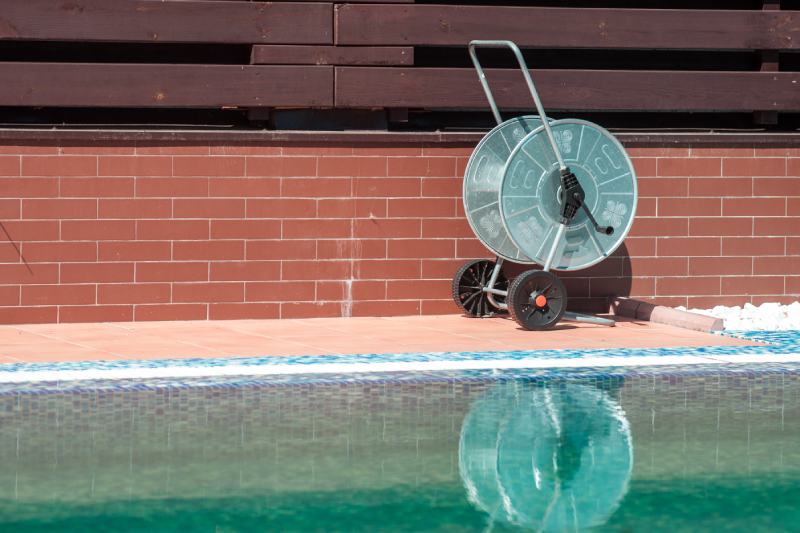
Frequency of Pool Vacuuming
Regular pool vacuuming is crucial for maintaining a visually appealing pool and promoting energy efficiency. The frequency of pool vacuuming depends on various factors, including the size of your pool, the surrounding environment, and the amount of debris. As a general guideline, it is recommended to vacuum your pool at least once a week to remove debris and prevent it from settling on the pool floor or clogging the filtration system.
By vacuuming your pool regularly, you prevent the accumulation of debris that can hinder proper water circulation and lead to inefficient energy usage. Debris, such as leaves, dirt, and other organic matter, can affect the performance of your pool’s filtration system and strain the pool pump, requiring it to work harder and consume more energy. Removing this debris through regular vacuuming ensures optimal water flow, reduces strain on the pool equipment, and promotes energy efficiency.
However, it’s important to note that the frequency of vacuuming may vary based on individual pool conditions. For example, if you have trees or plants near your pool that shed a significant amount of leaves or if your pool is frequently used, more frequent vacuuming may be necessary to maintain cleanliness and energy efficiency. Regularly monitoring your pool’s cleanliness will help you determine the ideal vacuuming frequency for your specific situation.
Regularly monitoring your pool’s cleanliness will help you determine the ideal vacuuming frequency for your specific situation. In some cases, algae can pose a persistent problem, which we cover in our piece on Tips for Algae Prevention and Removal in Your Pool.
Tips to Lower Your Pool Pump Energy Bill
The pool pump is a critical component of your pool’s circulation system and can significantly impact your energy bill. Adopting a few energy-saving practices can effectively reduce your pool pump energy consumption and save money in the long run.
For a thorough understanding of pool equipment, its routine inspection, and the basics of pool filters, check out our articles The Importance of Routine Pool Equipment Inspections and Grasping the Basics of Pool Filters and Their Maintenance.
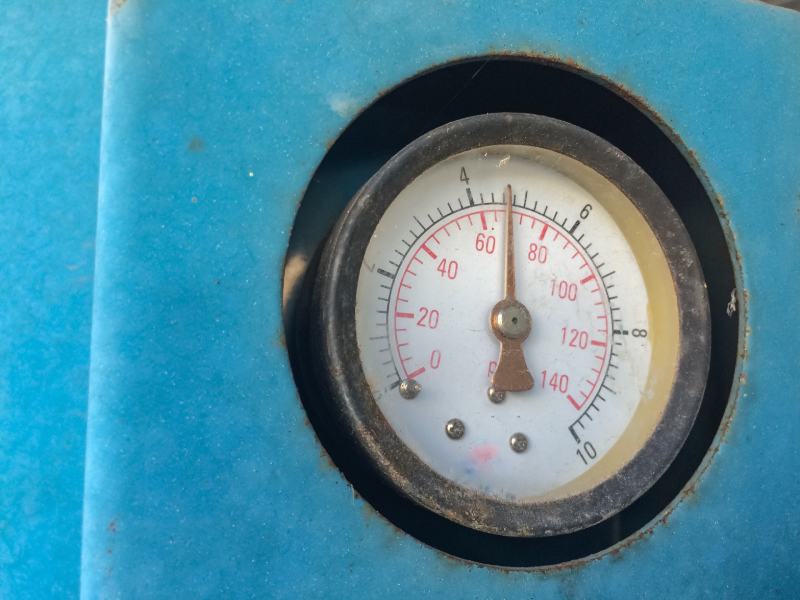
Here are some tips to lower your pool pump energy bill:
1. Optimize pump run time: Determine the optimal run time for your pool pump by considering factors such as pool size, usage, and filtration needs. Running the pump for shorter periods at off-peak hours can help reduce energy usage while maintaining water quality.
2. Use a variable speed pump: Variable speed pumps offer greater control over the pump’s energy consumption. They allow you to adjust the pump speed based on your pool’s needs, reducing energy usage compared to single-speed pumps.
3. Install a timer or automation system: Using a timer or an automation system enables you to schedule the pump’s operation and ensure it runs only when necessary. This prevents unnecessary energy consumption during periods of low pool usage.
4. Keep the pool clean: Regular pool maintenance, including vacuuming, skimming, and maintaining proper chemical balance, reduces the strain on the pool pump. A clean pool requires less filtration and circulation, lowering energy consumption.
5. Consider energy-efficient pool equipment: Opt for energy-efficient models when upgrading or replacing pool equipment. Look for ENERGY STAR-certified pool pumps and other equipment that meet high energy efficiency standards.
Implementing these energy-saving practices can significantly lower your pool pump energy bill and contribute to a more sustainable and cost-effective pool operation.
The Value of Automatic Pool Cleaners
Automatic pool cleaners offer a convenient and efficient solution for maintaining a clean pool while enhancing energy efficiency. These self-contained devices operate independently, cleaning the pool surface and capturing debris, allowing you to reduce manual cleaning efforts and save time.
One of the key advantages of automatic pool cleaners is their energy efficiency. Most modern automatic cleaners are designed with energy-saving features that optimize their cleaning performance while minimizing power consumption. They often utilize advanced technologies, such as intelligent navigation systems and energy-efficient motors, to clean the pool effectively and efficiently.
While automatic pool cleaners may require an initial investment, their long-term benefits make them worthwhile. They save you time and effort and contribute to energy savings and a more environmentally friendly pool operation.
Embracing Sustainable Pool Cleaning Practices
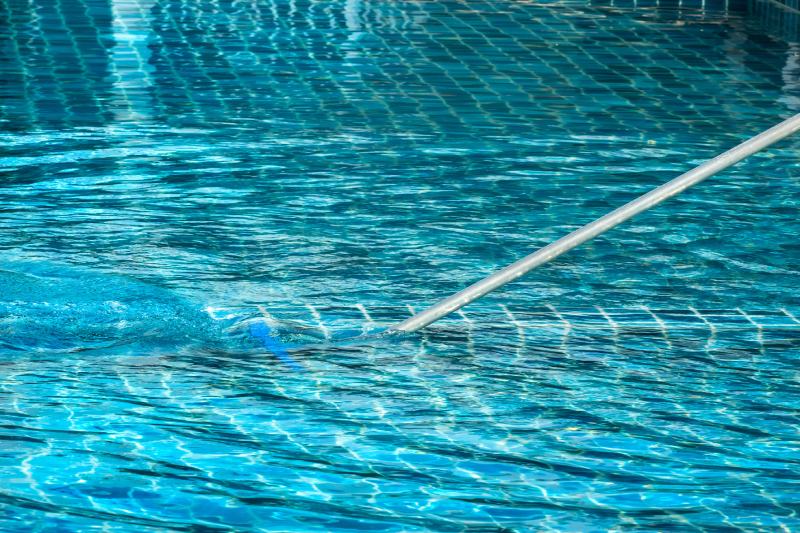
Advantages of Eco-Friendly Pool Maintenance
Adopting eco-friendly pool cleaning practices promotes environmental sustainability, enhances energy efficiency, and reduces operating costs. By embracing sustainable pool maintenance, you can create a healthier swimming environment while minimizing your carbon footprint.
Here are some advantages of eco-friendly pool maintenance:
1. Reduced chemical usage: Eco-friendly pool cleaning practices emphasize maintaining proper water chemistry naturally, reducing the need for harsh chemicals. This promotes healthier swimming conditions and reduces the energy required to produce, transport, and store these chemicals.
2. Energy-efficient equipment: Energy-efficient pool equipment, such as variable speed pumps and LED pool lights, can significantly reduce energy consumption. These devices consume less power while delivering optimal performance, saving energy and reducing costs.
3. Natural cleaning methods: Eco-friendly pool cleaning involves utilizing natural cleaning agents and techniques, such as enzyme-based cleaners and natural filtration systems. These methods minimize the use of chemicals while effectively removing debris and contaminants from the pool.
4. Water conservation: Sustainable pool maintenance practices prioritize water conservation by minimizing waste. Techniques such as proper pool cover usage, leak detection and repair, and responsible backwashing help conserve water resources and reduce energy associated with water treatment and distribution.
By embracing eco-friendly pool maintenance practices, you can create a sustainable pool environment that promotes energy efficiency and reduces environmental impact, ensuring a greener future for generations to come.
The Role of Robot Vacuums in Energy Efficiency
Robot vacuums have revolutionized pool maintenance by providing an efficient and automated cleaning solution. These intelligent devices navigate the pool surface, scrubbing and vacuuming debris and ensuring a clean pool with minimal human intervention.
When it comes to energy efficiency, robot vacuums offer several advantages. First, they are designed with energy-saving features that optimize their cleaning performance while minimizing power consumption. They often utilize efficient motors and intelligent algorithms to navigate the pool and clean every corner effectively.
Moreover, robot vacuums help conserve energy by reducing the reliance on the pool’s filtration system. By capturing debris before it reaches the main filter, these devices prevent clogging and extend the pool pump and filtration system’s lifespan. This results in reduced energy consumption and lower maintenance costs.
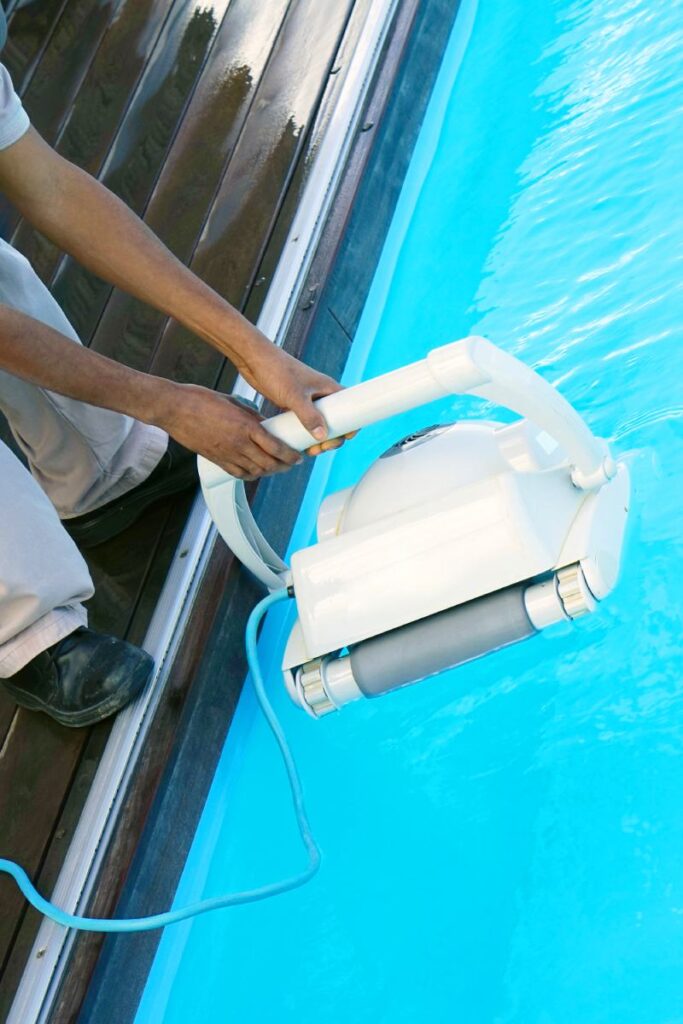
Energy-Saving Benefits of Robot Vacuums for Pool Maintenance
Robot vacuums offer energy-saving benefits for pool maintenance. By programming them to run during off-peak electricity hours, you can optimize energy usage and save on your energy bill.
Efficiency and Cost Savings with Robot Vacuums
Despite the upfront investment, robot vacuums provide valuable energy-saving capabilities and labor-saving benefits for pool maintenance. They offer convenience, efficiency, and significant energy savings, contributing to a more sustainable and cost-effective pool operation.
The Undeniable Link Between Pool Vacuuming and Energy Efficiency
Regular pool vacuuming and proper maintenance practices are crucial for reducing energy consumption and operating costs. It plays a significant role in keeping the pool clean and minimizing the strain on the filtration system, leading to energy savings. Swimmingpool.com provides additional information on the importance of vacuuming your pool and how it contributes to energy efficiency.
Creating an Energy-Efficient Pool Environment
Consider investing in energy-efficient pool cleaners like robot vacuums to create an energy-efficient pool environment. Additionally, optimize the duration and schedule of pool vacuuming to align with off-peak electricity hours and take advantage of lower energy rates. Embracing sustainable pool cleaning practices, such as skimming the pool surface before vacuuming and using pool covers to reduce debris, enhances energy efficiency.
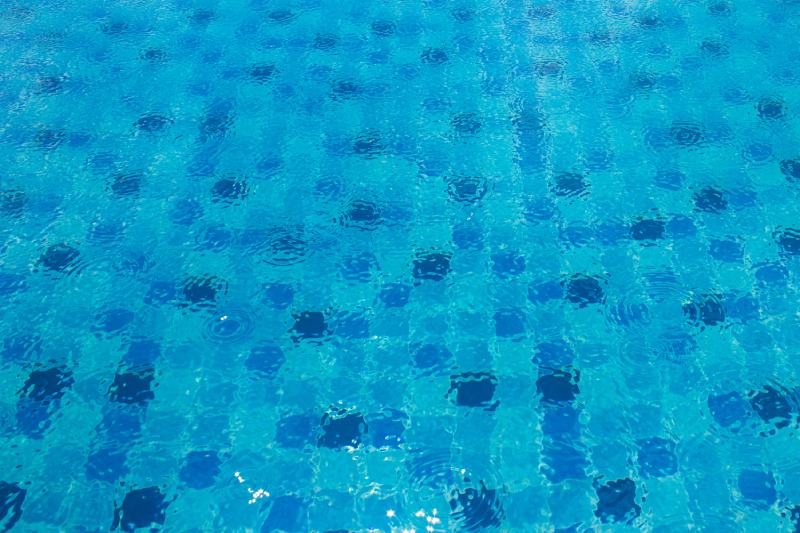
Achieving Energy Efficiency in Pool Maintenance
The link between pool vacuuming and energy efficiency is clear. Regular vacuuming and proper maintenance practices reduce energy consumption and operating costs. Investing in energy-efficient pool cleaners, optimizing vacuuming duration and schedule, and embracing sustainable pool cleaning practices allow you to enjoy a clean and inviting pool while minimizing your environmental impact and saving money on energy bills. Implement these strategies to create a more energy-efficient and eco-friendly pool environment for your enjoyment and benefit future generations.
Specializing in all things pool services, the team behind Finns Pool Services brings more than just technical expertise to West Palm Beach. Rooted in family values, this full-service company has not only built a legacy in top-notch pool care but also prides itself on its vast team of experts and its unwavering commitment to professionalism. With countless successful pool projects under their belt, they stand as a beacon of trust and quality in the heart of Florida. Dive into a world where dedication meets the deep end.



